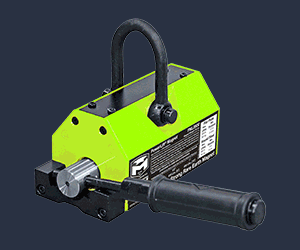Removing Restrictions on Grade 12 Titanium Applications
ITA moves to open its use in valves, pipes, fittings and heat exchangers in oil and gas applications.
Posted: February 20, 2016
The Industrial Applications committee of the International Titanium Association (ITA; Northglenn, CO) has achieved a significant first step in a project to remove restrictions on the use of Grade 12 titanium on the NACE MRO (maintenance, repair and overhaul) 175 standard, which is for the petroleum and natural gas industries regarding the use and performance of industrial materials in a corrosive, hydrogen-sulfide work environment. The hope is that removing certain restrictions will open up significant business opportunities for the titanium alloy.
Rob Henson, chair of the ITA Industrial Sub Group, said the first step to move the project forward involves working with the Corrosion Centre of Exova Group plc (West Midlands, UK), which will conduct testing on titanium Grade 12 and present the findings to NACE International (Houston, TX), formerly known as the National Association of Corrosion Engineers. They serve 30,000 members in 116 countries and are recognized globally as the premier authority for corrosion control solutions. Henson described Exova as the perfect choice, to work with NACE, given Exova’s track record in such projects.
Nickel alloys are currently the material of choice under the MRO 175 standard for use in hydrogen sulfide environments for the oil and gas industry. However, if the restrictions on use of titanium Grade 12 are removed from the NACE standard, Henson said this will create an important business opportunity for the titanium alloy, as it is less expensive than nickel alloys while offering equal or enhanced in-service performance properties.
Applications for titanium Grade 12 in oil and gas production would include valves, pipes, fittings and heat exchangers. Such components, under MRO 175, must be certified to resist “catastrophic cracking” and failure when operating in a corrosive hydrogen sulfide environment. The MRO 175 standard addresses an industrial material’s ability to withstand stress cracking in a hydrogen sulfide environment, also known as a “sour service” or “sour gas environment.”
Titanium Grade 12, an alloy that includes nickel and molybdenum, is very resistant to hydrogen sulfide industrial environments and represents a perfect application for this material, according to Henson. However, he pointed out that titanium Grade 12 mill practice is currently not in harmony, with the MRO 175 standard, originally written in the 1980s, in areas such as basic mill practices, plate hardness and heat-treating techniques.
Henson said the Industrial Sub Group selected this task because updating requirements for the production of Grade 12 titanium under the NRO 175 specification, “will impact the titanium industry globally. It is a tangible deliverable to advance the cause of removing barriers to the use of titanium. This is a first step, but it’s a significant first step.”
NACE standards such as MRO 175 are determined through a collection of laboratory experimental data and field experience. Having established a roadmap for this program with Exova, Henson guessed that the process to have titanium Grade 12 fully approved under the MRO 175 (also known as ISO 15156, the international designation of the standard) will be completed by the end of 2017.
Robert Henson, the business development manager of VSMPO Tirus US (Highlands Ranch, CO), is the ITA industrial applications committee chair. Jennifer Simpson is the executive director and Michael Gabriele is a freelance writer on behalf of the ITA.
www.titanium.org, www.exova.com, www.nace.org












